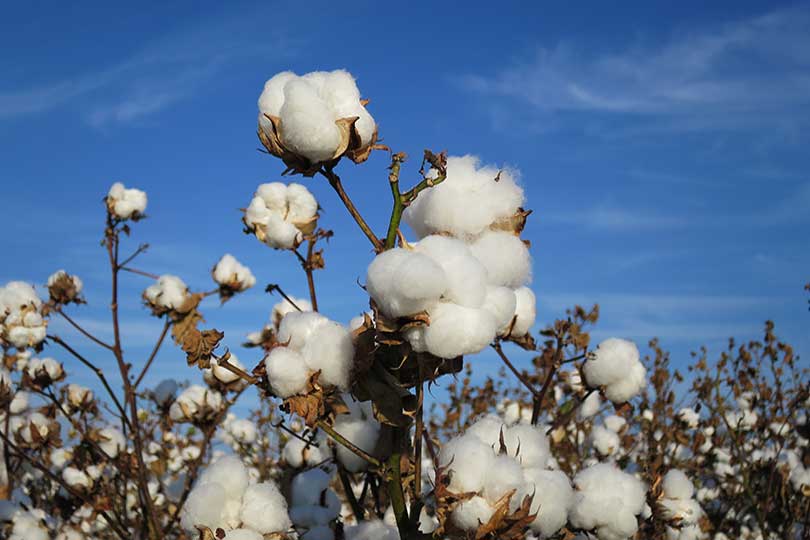International markets will pay a premium for U.S. cotton because of its high quality. And one Texas cotton gin has recently installed DNA tagging technology.
The ability to trace the cotton to the source of the specific farm it was grown on is part of a new technology called DNA tagging, according to Southwest Farm Press. This technology developed by Applied DNA Sciences, called SigNature T DNA tagging, allows manufacturers, retailers and consumers to trace products back to the farm where the cotton was grown.
King Mesa Gin, Inc. in Lamesa is the first gin in Texas to use the technology and the sixth to install it in the U.S.
“DNA-tagged cotton means that people here in the U.S. can keep on growing, harvesting and ginning cotton. Cotton is the fiber of our lives,” King Mesa CEO Jerry Harris told Southwest Farm Press.
The DNA molecule includes the type of cotton, the date it’s ginned and the location where it was grown.
There are several advantages to DNA tagging. It offers the assurance and guarantee that it’s pure and not contaminated with other types of cotton. Retailers may see premiums for DNA-tagged cotton fiber and end products, according to MeiLin Wan, vice president for textiles for Applied DNA Sciences.
“The real benefit is in knowing where cotton came from and where it is going,” Wan told Southwest Farm Press.
“The U.S. has high standards for labor and quality,” Wan said. “DNA tagging gives retailers confidence that the fiber they use comes from U.S. cotton.”
Wan said she hopes more gins will begin to implement this technology.
“Growth is incumbent on retailers stepping up and indicating they want it,” Wan said. “If they do, more gins will add DNA tagging.”
The process to install the technology in a gin is not particularly difficult and takes about a week, according to Wan.
“We have a turnkey operation, providing the equipment and installation,” Wan said. “We also do a test run before ginning season begins.”
According to Wan, the technology does not affect the way cotton is processed and easily integrates into the usual ginning process.
The program can provide a boost to Texas and the U.S. cotton industry, Harris said.
“King Mesa is the first in Texas to explore this new program, and we look forward to seeing it expand to more gins in the future,” Harris said.
HomeGrown-Cotton Proudly Grown in the USA uses the Applied DNA Sciences’ botanical-based SigNature T DNA molecular system to tag and test the long staple fibers in upland cotton.
“We are excited to see how HomeGrown can help to promote the use of U.S. cotton globally, specifically in providing a solution for traceability from dirt to shirt,” Applied DNA Sciences CEO Dr. James A Hayward told Southwest Farm Press. “Retailers and brands have a great story to tell the end-user about why U.S. cotton is king.”

